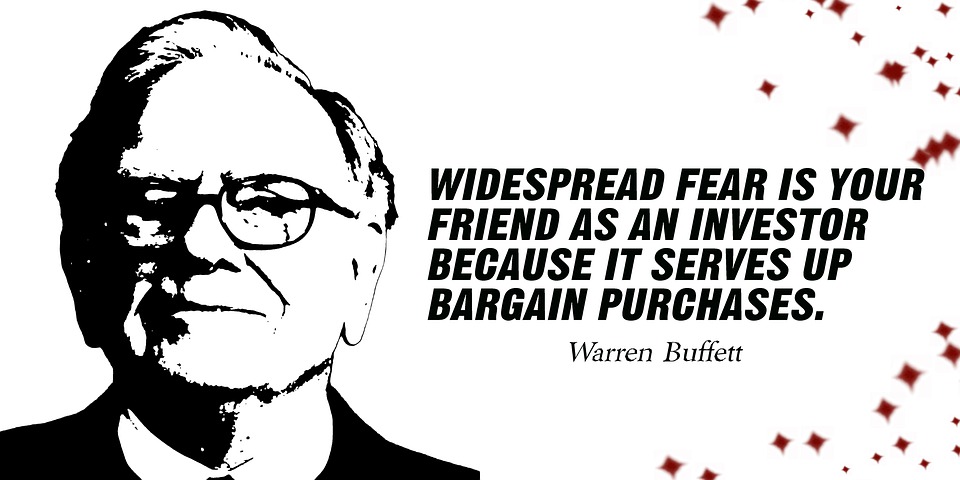Great investors are rare. In an internet world where we are constantly being sold to, it can be hard to tell the difference between a truly great investor and someone who started investing 2 years ago and just wants to sell you an ebook.
Studying the wrong investors can be an expensive mistake.
I have spent over 10 years learning about and participating in financial markets. This has helped me develop a good eye for separating the wannabes from the true great investors.
I’m going to share with you 4 great investors who you can study and learn from. All of them have a large body of work, so take your time to truly learn their investment philosophy. And in the meantime, ignore the wannabees trying to sell you their stock picks and get rich quick courses.
1. Warren Buffet
It has almost become cliché to talk about Warren Buffet and his investment philosophy. But he has become popular for a reason, he speaks truth and practices what he preaches. He is considered one of the greatest value investors of all time. The lessons he teaches are useful not only to investors, but anyone who wants to learn about business.
How to Study Warren Buffet
A great place to start is by reading the annual reports of his company, Berkshire Hathaway. These are available for free. A more concise way to learn about his business philosophy is to read “The Essays of Warren Buffet”, this book complies some of his best writings.

2. Benjamin Graham
I couldn’t include Warren Buffet on this list and not include his mentor, Benjamin Graham. Ben Graham was Warren Buffets teacher at Columbia University. He is considered the father of value investing. Although he developed his investment philosophy in the great depression era, many of his teachings, like the concept of a “margin of safety” are just as relevant today as they were back then.
How to Study Benjamin Graham
To learn from Benjamin Graham there are no shortcuts. You will need to go directly to the source and read his writings. His two major works are “Security Analysis” and “The Intelligent Investor”. Security analysis is the more technical of the two. The Intelligent investor is generally considered to be more accessible. Both books are thick, but take your time, it will be worth it.
3. John “Jack” Bogle
Jack Boggle is considered by many to be the father of the index fund. He founded Vanguard, which is the largest mutual fund company in the world, with over $5.3 trillion (Yes, trillion!) under management. He has a simple, common sense approach to investing that that teaches basic principles which are beneficial to any type of investor, large or small.
How to Study Jack Bogle
I recommend “Common Sense on Mutual Funds”. It is highly informative and not too difficult to read. But Jack Bogle wrote extensively and has numerous books. A good place to start is by looking up “Bogleheads”. Bogleheads are Jack Bogle adherents and they have a large and thriving community with a lot of good investment resources.
4. Nassim Nicholas Taleb
Nassim Taleb is probably most famous for his book “The Black Swan”. He started his career as a trader and now writes and deadlifts. His work is essential reading to help investors separate useful information from noise. It will teach investors how to truly manage risk without relying on useless models. Studying Taleb will help investors navigate and survive an investment landscape with far too many garbage models and snake-oil salesman.
How to Study Nassim Taleb
Taleb has several best-selling books including “Antifragil” and “Skin in the Game”. He considers all his books to be part of one work he calls “The Incerto” and encourages readers to read them in any order they like. For the more technical student “Dynamic Hedging” is a great way to learn about options investing.
Conclusion
Great investors are hard to find. This may seem like a small list, but there aren’t many truly great investors. The four investors above have thousands of pages of material for you to study, which should take you a long time to learn. Be patient and trust that by learning from the true greats you will improve as an investor.